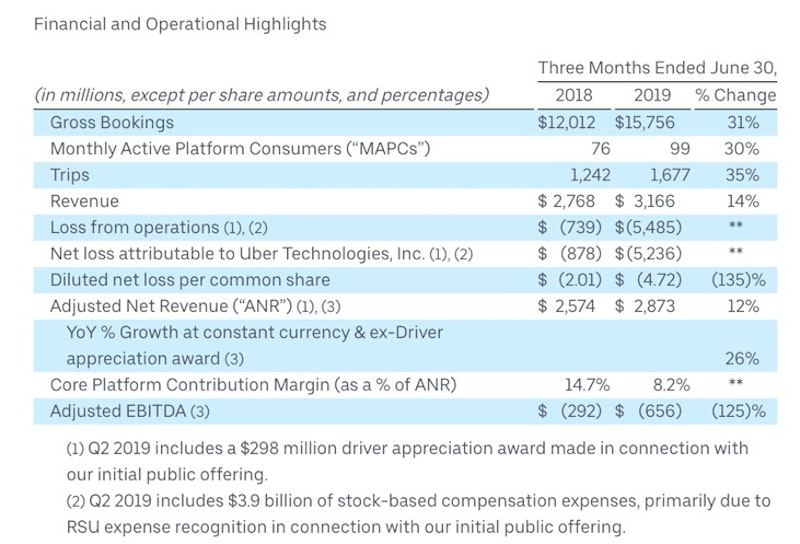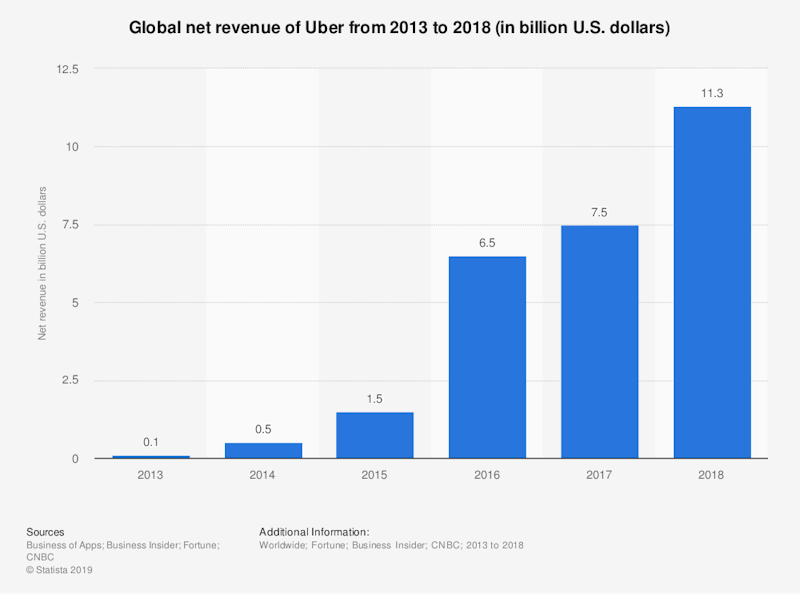In the News
Business economics: Can Uber ever be profitable?

9th August 2019
Uber is a rapid-growth platform business operating mainly in the ride-share and food delivery markets. But don't confuse fast growth with profits! Their latest quarterly losses are huge!
It targets increasing and then protecting market share rather than short term profitability. Indeed, at the time of their launch on the US stock market, their prospectus said that the business might never make a profit.

The company launched on the US stock market via an IPO (initial public offering) - Uber listed at $45 per share and the share issue raised over $8 billion. In May 2018, the business had a market capitalisation of $72 billion.
However, the share price of Uber has rarely reached the opening price since then. Despite - or perhaps because of their focus on fast growth - Uber continues to make heavy losses and drain cash.

Uber has more than 90 million active monthly users and a truly global platform, yet Uber’s losses were more than $3.7bn in the year to March 2019. In 2018, 5.2 billion people rode an Uber. In each of those trips, the company lost an average of 58 cents.
Is their business model anywhere close to being sustainable? The company is in fierce competition with its rival Lyft and is investing heavily on a range of newer businesses including food delivery, Uber Eats, and freight services.
In an attempt to cut their fixed costs and make operations more efficient, Uber recently announced it was laying off one-third of its 1,200-person marketing department. Some of their other main operating costs - apart from payments made to drivers - include research and development spending, fees to Amazon Web Services for using their cloud computing resources, alongside a huge team of software engineers.

Uber “employs” around four million drivers worldwide and operates in more than sixty countries. But in several they face strong regulatory challenges which have threatened a loss of licence to operate. There are also tensions with many of their drivers over wages and other conditions of employment. In some cities, Uber drivers have gone on strike complaining of poverty wages.

You might also like

Mining tungsten in the UK
16th March 2015

Apple & Microsoft: Collaboration not Competition
10th September 2015
Conglomerate Businesses
Topic Videos
Sales Revenue Maximisation
Study Notes

Byron in financial trouble seeks cuts in rents
9th January 2018
Amazon invests in Deliveroo
19th May 2019
Business Objectives – Key Summary
Topic Videos

Horizontal Integration - Vodafone and Three in Merger Talks
3rd October 2022